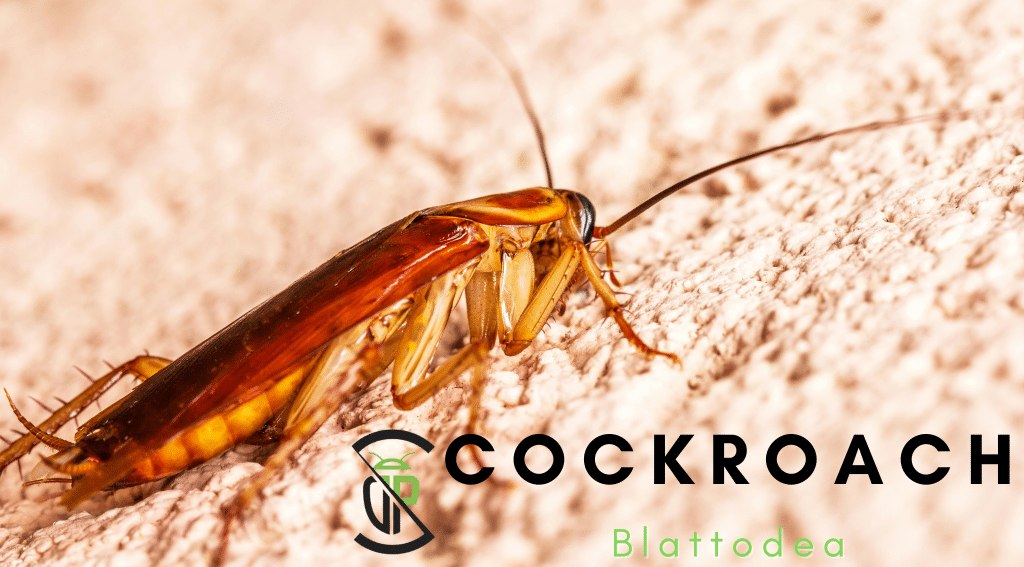Cockroaches in South Florida

Cockroaches are a common pest in South Florida, known for their resilience and ability to thrive in various environments. These pests are not only a nuisance but also pose significant health risks by spreading bacteria and triggering allergies. Dade Pest Solutions specializes in identifying and eliminating cockroach infestations to keep your home safe and clean.
Common Cockroach Species in South Florida
American Cockroach
- Identification: Also known as Palmetto Bugs, they are the largest cockroach species in Florida, growing up to 2.5 inches in length. They are reddish-brown with a yellowish band around the shield behind their head.
- Habitat: Prefers warm, humid environments such as sewers, basements, and crawl spaces. They often enter homes through cracks, sewer lines, or plumbing.
- Behavior: Nocturnal and scavengers; they feed on a variety of organic materials.
- Risks: Known to carry bacteria like E. coli and Salmonella, which can contaminate food and surfaces.
German Cockroach
- Identification: Smaller than American cockroaches, measuring about ½ inch in length. They are light brown with two dark parallel stripes on their pronotum.
- Habitat: Prefers indoor environments, especially kitchens and bathrooms where food and moisture are abundant.
- Behavior: Reproduces rapidly and can quickly infest an area if not controlled.
- Risks: Major carriers of allergens that can trigger asthma and allergic reactions.
Brown-Banded Cockroach
- Identification: About ½ inch long with light brown bands across their wings. They are smaller and more agile than American cockroaches.
- Habitat: Prefers warm, dry environments like ceilings, attics, and upper cabinets.
- Behavior: Nocturnal and often found in higher locations within buildings.
- Risks: Can spread bacteria and allergens, causing health issues.
Asian Cockroach
- Identification: Similar in appearance to German cockroaches but with longer wings. They are light brown with two parallel lines on their pronotum.
- Habitat: Typically found outdoors in moist, shady areas but can enter homes attracted by light.
- Behavior: Strong fliers and more likely to be found around light sources.
- Risks: Like other cockroaches, they can carry bacteria and allergens.
Health Risks of Cockroaches
Cockroaches can pose several health risks, including:
- Allergies and Asthma: Cockroach allergens can trigger asthma and allergic reactions, especially in children and sensitive individuals.
- Disease Transmission: They can spread bacteria such as E. coli and Salmonella, leading to food poisoning and other illnesses.
- Contamination: Cockroaches can contaminate food, utensils, and surfaces with their droppings and saliva.
Cockroach Control Solutions
At Dade Pest Solutions, we offer comprehensive cockroach control services that include:
- Identification: Properly identifying the cockroach species to apply the most effective treatment.
- Treatment: Using a combination of baits, insect growth regulators, and residual insecticides to eliminate infestations.
- Prevention: Implementing measures to prevent future infestations, such as sealing entry points, reducing moisture, and maintaining cleanliness.
FAQ
Q: How do I know if I have a cockroach infestation?
A: Signs of an infestation include seeing live cockroaches, finding droppings, discovering egg cases, and noticing a musty odor.
Q: Are cockroaches dangerous?
A: Yes, cockroaches can spread bacteria, trigger allergies, and exacerbate asthma symptoms. They can also contaminate food and surfaces.
Q: How can I prevent cockroaches from entering my home?
A: Preventative measures include sealing cracks and crevices, keeping food in sealed containers, reducing moisture, and maintaining a clean environment.
Q: Can I use over-the-counter products to get rid of cockroaches?
A: While some products may provide temporary relief, they often fail to address the root cause of infestations. Professional pest control services offer more effective, long-term solutions.
Q: What should I do if I see a cockroach in my home?
A: Contact Dade Pest Solutions immediately for a professional inspection and treatment plan. Early intervention is crucial to controlling infestations.
Q: How often should I schedule pest control treatments for cockroaches?
A: For optimal protection, we recommend quarterly pest control treatments to prevent infestations and address any emerging pest issues. For more information or to schedule a free evaluation, contact Dade Pest Solutions today. Our team of experts is dedicated to keeping your home cockroach-free and ensuring your peace of mind.
